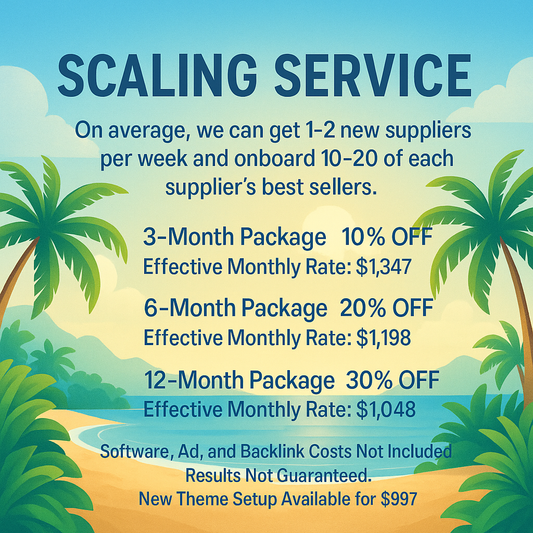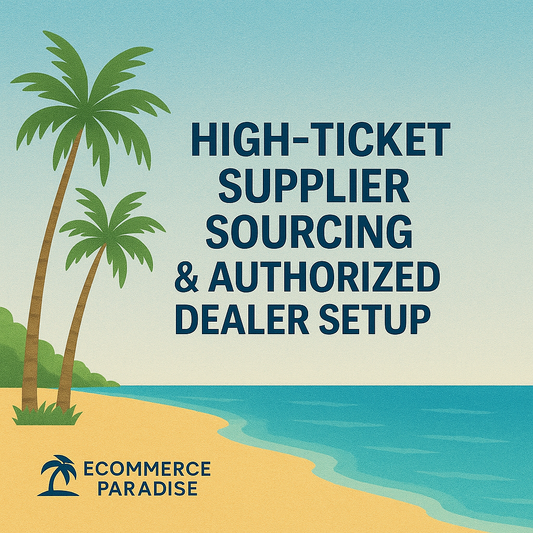
Best Online Brokers Reviewed for 2025 Investors
The best online brokers make it simple and safe for anyone to buy and sell stocks, ETFs, and other investments right from their computer or phone. With so many choices available, it can be hard to know which broker offers the best mix of low fees, useful tools, and easy-to-use platforms.
People want a broker that meets their needs, whether they are new to investing or have years of experience. The right choice depends on what features matter most, like customer support, trading costs, and research tools.
In today’s digital world, where visibility online plays a crucial role, even financial service platforms benefit from ecommerce SEO strategies to reach more users. This guide compares the top online brokers to help readers choose the most reliable and user-friendly option for their investing goals.
Quick List: Best Online Brokers
- Fidelity Investments
- Charles Schwab
- E*TRADE from Morgan Stanley
- Robinhood
- Webull
- Public
- Interactive Brokers
- TradeStation
- Tastytrade
- SogoTrade
- eToro
- SoFi Active
- Merrill Edge
What to Look for in the Best Online Brokers
Choosing an online broker can make a big difference in how easy and affordable it is to invest. The best online brokers have helpful features, reasonable costs, and solid customer support that helps investors succeed.
Core Features That Matter
A strong online broker offers easy access to stocks, ETFs, and other investments. Look for platforms that give real-time quotes, fast order execution, and advanced research tools.
Many top stock brokers also let users trade options, mutual funds, and even cryptocurrencies. Some have mobile trading apps with full features so users can buy or sell from anywhere.
Security is key. Brokers should use encryption and two-factor authentication to protect accounts. They also need to provide account protection in case of fraud or company failure.
User Experience and Platform Design
The best online brokers focus on making their websites and trading apps simple to use. Clean menus and dashboards make it easy to find account info or place trades.
Many stock brokers offer demo accounts or practice tools. New traders can test strategies before risking real money. Accessibility matters, so look for clear font, adjustable layouts, and good mobile support.
Fast load times and reliable servers are important. Nobody wants their app to freeze when making a quick trade. A well-designed platform saves time and reduces mistakes.
Customer Support and Education
Quality customer service helps investors get the answers they need. Best online brokers offer live chat, email, and phone support. Some, like Charles Schwab and Fidelity, have 24/7 service for urgent situations.
Education is another factor. Brokers may offer a library of articles, videos, and webinars on investing basics and market trends. Some even run in-person workshops or virtual classes.
A good broker gives new investors the resources to learn, while also supporting experienced traders with advanced research and market analysis.
Fee Structures and Costs
Fees can have a big impact on investment returns. Many leading stock brokers now offer $0 commissions on stock and ETF trades. However, there may be other costs, such as fees for options trading, broker-assisted trades, or account inactivity.
It helps to compare all charges before choosing a broker. Here is a sample of common fees:
| Fee Type | Typical Range |
|---|---|
| Stock/ETF Trade Commission | $0 (most brokers) |
| Options Contract Fee | $0.50 – $0.65/contract |
| Mutual Fund Fee | $0 – $45/trade |
| Broker-Assisted Trade | $25 – $65/trade |
| Annual Account Fee | $0 – $75/year |
Some brokers offer cash bonuses or free trades for new accounts. Always read the fine print before signing up to avoid surprises.
Choosing a broker with clear, low fees can save money in the long run and help more of the investor’s returns stay in their own pocket.
Top Online Brokers Compared
Fidelity Investments, Charles Schwab, and E*TRADE from Morgan Stanley stand out due to their low fees, robust platforms, and range of investment choices. Each broker brings unique tools and support for different types of investors.
Fidelity Investments
Fidelity Investments is well known for its no account minimums and $0 commission for US stocks and ETFs. The platform offers a wide range of mutual funds with no transaction fees.
A major benefit is the easy-to-use website and mobile apps, which suit both beginners and advanced investors. Research resources include in-depth reports, real-time data, and educational materials.
Investors also appreciate Fidelity's customer support, available by phone, chat, and in person at local branches. Features like automatic investing, retirement tools, and cash management make it a strong choice for those wanting long-term solutions.
Charles Schwab
Charles Schwab attracts investors with its $0 stock and ETF trades and wide set of available account types. They offer robust trading platforms such as StreetSmart Edge, which is designed to be both powerful and user-friendly.
Schwab's low-cost Index Funds and access to over 4,000 no-transaction-fee mutual funds stand out. The broker provides a good range of learning resources, including webinars and in-person events.
Customer support is available 24/7, and there are hundreds of local branches for in-person help. Schwab also offers automatic investment plans and tools for retirement savers and active traders alike.
E*TRADE from Morgan Stanley
ETRADE from Morgan Stanley offers a strong set of trading platforms, including both **ETRADE web** and Power E*TRADE for more active users. US stock and ETF trades have no commission, and the broker offers thousands of mutual funds.
Notable features include advanced charting tools, screeners, and options trading support. Educational resources cover topics from investing basics to advanced trading strategies.
Support is available by phone and live chat, and the platform's design makes it friendly for both beginners and active traders. E*TRADE is a strong fit for those who want powerful tools and a flexible investing experience.
Best Online Brokers for Beginners
Choosing the right online broker is important for beginners who want simple platforms, low costs, and helpful tools. Some brokers focus on user experience, while others offer social or educational features.
Robinhood
Robinhood is popular because of its user-friendly app and no-commission trades. Beginners benefit from a simple sign-up process and a dashboard that makes buying stocks, ETFs, and crypto straightforward.
The app uses clear graphics and large buttons. This makes it less overwhelming for those new to trading. There are also fractional shares, meaning someone can buy a part of a stock with as little as $1.
Robinhood offers basic educational pieces and a newsfeed, but not much advanced research. For most new investors, its focus on ease of use and low costs is a key advantage.
| Feature | Details |
|---|---|
| Minimum Deposit | $0 |
| Stock Fees | $0 per trade |
| Investment Type | Stocks, ETFs, Crypto |
Webull
Webull is known for being easy to use while still offering more features than some beginner-focused apps. The design is clean, so new users can find main tools quickly. The app also provides real-time data charts and price alerts, helping beginners learn market basics without overwhelm.
Webull’s demo trading or "paper trading" lets users practice with fake money first. This can reduce mistakes made from inexperience. The platform has commission-free stocks and ETFs.
Educational resources are more developed than Robinhood. There are beginner videos, articles, and even podcasts. Webull’s mix of ease of use and advanced features appeals to beginners who want to grow their skills.
| Tool | Advantage |
|---|---|
| Paper Trading | Practice Trading |
| Charting Tools | Visual Learning |
| Newsfeed | Up-to-date Info |
Public
Public stands out by letting users share thoughts, see what others are investing in, and follow trends. There is a feed where people comment on stocks, making it social and interactive.
For beginners, learning through community is useful. Public has investing groups and topics, so new investors can ask questions or read explanations from others. The app also explains basic investing terms without jargon.
Public offers fractional shares and no commission on trades. Privacy is respected, so users decide what to share. It’s aimed at anyone wanting to learn alongside others in a straightforward, easy-to-understand platform.
Best Online Brokers for Advanced Traders
Some online brokers offer advanced charting, customizable layouts, direct market access, and better pricing for active traders. Others stand out by supporting specialized tools for options and futures trading.
Interactive Brokers
Interactive Brokers is known for its robust set of trading tools. The Trader Workstation (TWS) software offers advanced charting and analytical tools. Users can build complex strategies using multiple asset classes, including stocks, options, futures, and forex.
Real-time data, risk management features, and over 100 order types make Interactive Brokers a good fit for professionals and frequent traders. API access allows automated trading and custom algorithms. Spreads are tight and commissions are among the lowest. Clients also benefit from global market access, making it easier to diversify.
Key Features:
- Trader Workstation with detailed custom scanners
- Advanced order types and real-time risk tools
- API and algorithmic trading support
- Low commissions, especially for high-volume users
TradeStation
TradeStation is popular among traders who want intensive charting and strategy tools. The platform provides customizable workspaces, hundreds of built-in indicators, and powerful backtesting features.
TradeStation’s Matrix tool shows market depth and supports direct order placement. Their EasyLanguage coding tool allows traders to create and automate their own strategies. The platform covers stocks, options, and futures with detailed analytics.
Key Features:
- Custom charting and technical analysis tools
- Matrix feature for fast order execution
- Strategy automation with EasyLanguage
- Free access to many research tools and education resources
Tastytrade
Tastytrade focuses on options, but also supports stocks and futures. Its web-based platform is easy to use but offers depth for advanced options traders. Users can view live volatility indicators, structure complex multi-leg trades, and analyze potential risks and rewards before placing orders.
Order execution is fast, and commissions are straightforward. Tastytrade also produces educational videos that appeal to traders wanting to learn advanced strategies. Pricing is designed for active options traders, keeping costs low for high-frequency trading.
Key Features:
- Intuitive platform with advanced options analysis
- Fast trade execution
- Multiple strategies for options, including spreads and iron condors
- In-depth education and research resources
Online Brokers for Low-Cost Trading
Many people want to save money when buying and selling stocks. Picking the right online broker can help lower trading costs and make investing more affordable.
Zero and Low Commission Options
Some online brokers offer zero-commission trades on stocks, ETFs, and even some options. For example, Robinhood and Webull both provide $0 commission on U.S. stock and ETF trades. This means there are no fees for buying or selling these investments.
Robinhood is popular for its easy-to-use mobile app. It has no account minimums and gives users access to real-time market data. However, Robinhood has fewer advanced research tools than some other brokers.
Webull also charges no commissions and includes features that active traders may like. These include advanced charts, extended trading hours, and in-depth analytics. Webull supports trading stocks, ETFs, and options for free.
Below is a quick comparison:
| Broker | Stock/ETF Commissions | Options Commissions | Notable Features |
|---|---|---|---|
| Robinhood | $0 | $0 | Simple app, no minimums |
| Webull | $0 | $0 | Extended hours, analytics |
These brokers help traders keep more of their money by removing most trading fees.
SogoTrade
SogoTrade is a less-known broker that focuses on low-cost trading. It does not offer zero-commission trades on every product, but its fees are low compared to many traditional brokers. For stock trading, SogoTrade’s standard commission is $2.88 per trade. This is much lower than firms that still charge $4.95 or more.
SogoTrade allows investors to trade stocks, ETFs, and options. Options trades have a base fee and a small per-contract charge. The platform supports Chinese language, which is helpful for some users. While SogoTrade offers fewer technical tools than Webull, it does provide simple web and mobile access.
SogoTrade’s affordable pricing can be appealing to cost-conscious investors. It is best for people who do not need lots of extra features but want reliable, basic trading at a low cost.
Specialized Platforms and Unique Offerings
Online brokers sometimes focus on features not found at traditional investment services. These platforms appeal to users with different needs, from copying trades to using advisor matching tools or gaining access to unique account benefits.
eToro
eToro stands out with its social trading network. Users can view, follow, and automatically copy trades made by experienced investors from around the world. This is appealing to beginners who want to learn by watching others or for those looking to simplify investment decisions.
Key features:
- CopyPortfolios group assets or top traders
- News Feed for real-time updates
- Simple interface for copying trades with a click
eToro offers stocks, ETFs, crypto, and more. Social features allow users to discuss strategies and ask questions. While copying does not guarantee profits, it reduces the learning curve for investors who prefer a hands-on, interactive environment.
SoFi Active
SoFi Active Invest targets users who like managing their own portfolios but want free trades and low costs. The platform offers commission-free stock and ETF trading, with no account minimums, making it accessible for beginners.
Benefits include:
- Fractional shares called “Stock Bits”
- Automated investing options
- Access to initial public offerings (IPOs)
- Educational resources and financial planning tools
SoFi also gives members extra perks, such as discounts on loans and invites to career events. The platform’s mix of self-directed investing and helpful member benefits makes it unique among online brokers.
Best Online Brokers for Research and Analysis
A good online broker offers more than just low fees and fast trading. Strong research tools and data can make a real difference in an investor’s results. Brokers like Fidelity Investments, Charles Schwab, and Merrill Edge stand out because they give clients access to both high-quality research and detailed analysis features.
Comparing Research Tools
Fidelity Investments provides in-depth stock reports, analyst ratings, screeners, and access to professional research from trusted names like Morningstar and Zacks. Users can sort stocks based on key factors and view multiple expert opinions in one place.
Charles Schwab offers its own Schwab Equity Ratings along with third-party research. They also provide screeners for stocks, ETFs, and mutual funds. Schwab’s knowledge center gives investors access to educational articles and market commentary.
Merrill Edge clients enjoy access to Bank of America Global Research and detailed market insights. Their platform includes investment screeners, curated news feeds, and clear buy/sell analysis. The research experience is built directly into their online dashboard.
A side-by-side look:
| Broker | Independent Research Sources | Stock Screeners | Extra Features |
|---|---|---|---|
| Fidelity | Yes (e.g., Morningstar, Zacks) | Advanced | Analyst reports, webinars |
| Charles Schwab | Yes (proprietary and 3rd party) | Yes | News, educational content |
| Merrill Edge | Yes (Bank of America) | Yes | News feeds, buy/sell signals |
Market Data and Charting Features
Fidelity’s platform provides free real-time quotes and interactive charts. Users can compare stocks, set alerts, and use drawing tools to study trends. Detailed data on fundamentals and technicals appears next to each chart.
Charles Schwab offers StreetSmart Edge, a platform with streaming data, customizable charts, and technical analysis tools. Investors can set up watchlists, analyze patterns, and compare price histories easily.
Merrill Edge gives real-time quotes and basic charting tools, which are useful for most investors. The platform supports simple overlays and historical price tracking. For deeper technical analysis, other brokers may offer more advanced options.
Key charting features at a glance:
- Fidelity: Interactive charts, trendlines, stock comparisons
- Charles Schwab: Advanced charting, alerts, streaming quotes
- Merrill Edge: Basic charts, historical price data, overlays
Account Types and Investment Choices
Best Online Brokers offer a range of account types so investors can match their needs and goals. Users can pick from taxable brokerage accounts, retirement options, and different ways to buy and sell stocks, ETFs, and options.
Taxable Brokerage Accounts
Stock brokers offer standard brokerage accounts for regular investing. These accounts are easy to open and use, with no limits on how much investors can deposit or withdraw unless stated by the broker. Investors pay taxes on dividends, interest, and capital gains made in taxable accounts.
Most online brokers let users buy and sell a wide range of assets from a taxable brokerage account. This includes stocks, exchange-traded funds (ETFs), bonds, and options. Many brokers provide user-friendly dashboards, mobile apps, and research tools that help with decision-making.
Some top brokers, like Fidelity, Schwab, and E*TRADE, offer zero-commission trading on stocks and ETFs. This makes taxable brokerage accounts cost-effective for both beginners and active traders.
Retirement and IRA Options
Many online brokers let users open retirement accounts like traditional IRAs, Roth IRAs, and SEP IRAs. These accounts are designed for long-term saving and have tax advantages to help with retirement planning.
Traditional IRAs allow tax-deductible contributions, but withdrawals are taxed in retirement. Roth IRAs take post-tax money but let users withdraw earnings tax-free in retirement. SEP IRAs are best for small business owners or self-employed people, offering higher contribution limits.
Leading stock brokers, such as Vanguard and Charles Schwab, provide simple tools to compare account types and figure out which option best fits retirement needs. Most allow easy transfers from old employer plans, and some offer professional guidance for account setup.
Access to Stocks, ETFs, and Options
Best Online Brokers give investors access to thousands of stocks listed on major U.S. and international exchanges. Many also offer a huge selection of exchange-traded funds (ETFs), which bundle many investments into one product for easy diversification.
Options trading is available at most top brokers, with platforms like TD Ameritrade and Robinhood offering educational tools and paper trading for practice. Some brokers charge low or zero commissions on options contracts, though small contract fees might still apply.
Investors can filter stocks and ETFs by industry, performance, dividend history, or other features. Commission-free trading on major assets is common, making it more affordable for new and experienced investors to build a diverse portfolio.
Security and Regulatory Safeguards
The best online brokers put strong measures in place to protect user accounts and follow strict rules set by government agencies. These steps help make sure accounts and personal data stay safe during every transaction.
Regulatory Compliance and Oversight
Best Online Brokers must work under the supervision of government bodies like the Securities and Exchange Commission (SEC) in the United States or the Financial Industry Regulatory Authority (FINRA). These groups set clear rules that brokers are required to follow.
Stock Brokers must register with these agencies, which helps prevent fraud and ensures fair trading. Many top brokers also follow extra standards, such as undergoing regular audits.
Important regulatory bodies:
- SEC (U.S.)
- FINRA (U.S.)
- FCA (U.K.)
- ASIC (Australia)
Checking a broker’s registration through these authorities can help investors avoid scams and stay informed about broker reliability.
Account Protection and Insurance
Top online brokers offer layers of account protection to keep funds and personal information safe. Accounts at most U.S. brokers are insured by the Securities Investor Protection Corporation (SIPC) up to $500,000, including a $250,000 cash limit.
Many brokers also have extra private insurance beyond SIPC coverage. Personal data is protected with encryption, two-factor authentication, and secure password policies.
Common security features:
| Feature | Purpose |
|---|---|
| Encryption | Protects data transmission |
| Two-Factor Authentication | Extra login security |
| SIPC Insurance | Covers securities and cash |
Choosing brokers with these features can reduce the risk of loss if a firm fails or if someone tries to access the account without permission.
How to Choose the Right Online Broker
Choosing an online broker depends on trading style, platform features, and customer feedback. Each choice can affect fees, tools available, and support experienced during trading.
Assessing Your Trading Needs
Investors must decide if they want to trade stocks, options, ETFs, or other assets. Some online brokers may offer better support for beginners, while others have tools for advanced traders.
Beginner-friendly platforms often provide clear education, simple interfaces, and low minimum deposits. Professional traders may need advanced charting, fast execution speed, and financial research tools.
Frequent traders might value low commission fees and fast order processing. Occasional investors may care more about customer support and easy account management.
Check for access to the types of securities you plan to trade. Not all stock brokers offer international stocks, mutual funds, or cryptocurrencies. Make a list of your goals before opening an account.
Evaluating Platform Compatibility
Different brokers provide different platforms for placing trades, analyzing stocks, and tracking profits. It is important to see if the broker works on your preferred devices, like mobile phones, tablets, or desktop computers.
Some traders may need access to platforms with real-time price data or advanced alert systems. Check platform features such as:
- Mobile trading apps
- Customizable dashboards
- Integrated research tools
- Technical indicators
Older computers or certain operating systems might not support the latest trading features. Always review whether the online broker’s software fits your setup and personal workflow. Request a demo or use a free trial when possible.
Understanding Broker Reviews
User reviews and ratings can reveal how a broker performs after signup. Read what other traders say about fees, order execution speed, and help from customer service.
Look for repeated complaints or praise in areas important to you, such as withdrawal times or website reliability. Third-party review sites and online forums can uncover both strengths and weaknesses.
Pay attention to the broker's reputation for trustworthiness. Security practices and handling of personal information should be a priority. A broker with strong reviews on service, transparency, and reliability is likely a safer choice. Always confirm that the broker is regulated by a well-known financial authority.















